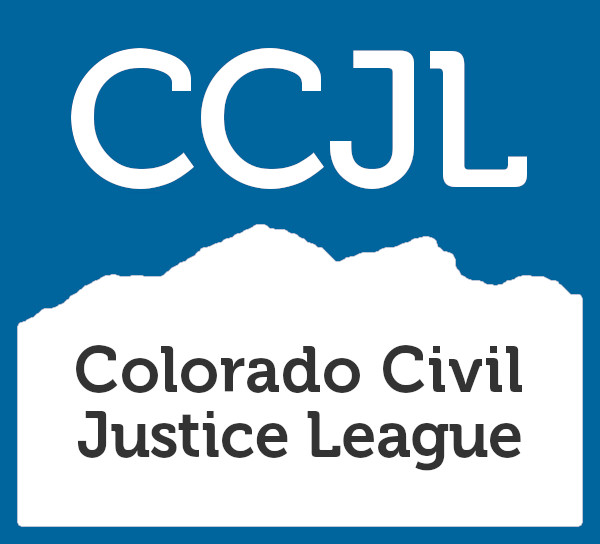Equal pay for equal work isn’t just a laudable goal. It’s basic fairness, so Colorado law can certainly require it of employers.
On the other hand, Senate Bill 85, as originally introduced by Sen. Jessie Danielson, D-Wheat Ridge, and Brittany Pettersen, D-Lakewood, didn’t focus on basic fairness. Instead, it contained rigid rules and “gotcha” litigation traps that doom Colorado employers to failure, then punish them with costly lawsuits for violations that have nothing to do with discrimination.
For example, each of the following would have constituted unlawful discrimination under the introduced bill:
- •A male hotel clerk in Aspen is paid more than a female hotel clerk in Akron – not because one is male and the other female, but due to differences in the cost-of-living.
- •A female nurse is paid more to work the graveyard shift than a male nurse who works days. That’s because one is paid more to work undesirable hours.
- •A company has a hard time recruiting employees to work in remote parts of the state, so they pay a male sales representative more to work in Springfield than a female doing the same job in Greeley. Employers sometimes pay more for hard-to-fill positions.
These are all legitimate reasons for paying different salaries and have nothing to do with whether the employee is male or female.
At the bill’s first hearing in Senate Judiciary Committee, some practical concerns raised by Colorado employers were addressed. For example, amendments to the bill clarified that liquidated damages could not be imposed if an employer acts in good faith. Also, pay differentials based on geography would be allowed. But much work remains.
Senate Bill 85 still allows an employee to bring a lawsuit without ever filing a formal complaint with a neutral party, such as the Department of Labor (which typically handles wage disputes) or the Civil Rights Commission (which hears claims of unlawful discrimination).
An employer’s first notice of an employee’s complaint could be when served with a lawsuit. That’s not fair or reasonable. Other bills (HB 1025, limiting job applicant criminal history inquiries) have accomplished their sponsors’ goals without creating new lawsuits.
Forcing both sides to “lawyer up” right out of the gate is unnecessarily adversarial, particularly since it’s common for disgruntled employees to file dubious complaints against former employers. The Colorado Civil Rights Division’s annual report shows that some 95 percent of employment discrimination claims filed with CCRD are found to have “no probable cause.” The administrative procedure provides for a “cooling off” period while a neutral third-party investigates the complaint.
As Senate Bill 85 moves forward, CCJL is counting on sensible legislators of both parties to recognize that Colorado can require basic fairness toward workers without putting employers in a no-win predicament.
BILLS AT A GLANCE (CCJL POSITION)
CCJL positions are primarily determined by potential for expanding liability or whether legislation is likely to increase or decrease frivolous lawsuits. If no position is listed, CCJL is monitoring bill.
HB 1025 – Criminal History of Job Applicants
Sponsors: Rep. Leslie Herod, D-Denver, Rep. Jovan Melton, D-Aurora
Comments: Commendably accomplishes stated policy goal without creating new lawsuits.
HB 1106 – Rental Application Fees
Sponsors: Rep. Brianna Titone, D-Arvada, Rep. Serena Gonzales-Guteirrez, D-Denver; Sen. Brittany Petterson, D-Lakewood.
HB 1170 – Residential Tenants & Landlord Contracts
Sponsors: Rep. Dominique Jackson, D-Aurora; Rep. Mike Weissman, D-Aurora; Sen. Angela Williams, D-Denver; Sen. Jeff Bridges, D-Greenwood Village.
Comments: As introduced, bill creates incentives for unnecessary litigation by allowing tenant to sue for three times actual damages and awards attorney fees and costs only to prevailing tenant, not to prevailing landord.
HB 1183 – Automated Defebrillator Liability
Sponsors: Rep. Dylan Roberts, D-Eagle. Comments: As introduced, bill requires that any “public place” or public school to accept the donation of an automated external defibrillator (AED) but does not extend Colorado’s existing Good Samaritan liability protections to those places or persons who may use the AED.
SB 43 – Increase Number of District Court Judges (SUPPORT )
Sponsors: Sen. Pete Lee, D-Colorado Springs; Sen. Bob Gardner, R-Colorado Springs; Rep. Terri Carver, R-Colorado Springs; Rep. Leslie Herod, D-Denver.
Comments: Consistent with CCJL’s mission to attract and retain quality judges who can efficiently and capably adjudicate cases.
SB 85 – Pay Disparities (AMEND)
Sponsors: Sen. Brittany Pettersen, D-Lakewood; Sen. Jessie Danielson, D-Wheat Ridge; Rep. Janet Buckner, D-Aurora; Rep. Serena Gonzales-Gutierrez, D-Denver.
Comments: See above.
SB 109 – Increase Limits on Lawsuit Damages (OPPOSE)
Sponsors: Sen. Steve Fenberg, D-Boulder; Rep. Alec Garnett, D-Denver.
Comments: Increasing limits on damages for pain and suffering claims will increase costs to Colorado families and consumers who will see the value their present insurance reduced and be forced to choose between paying more for the same coverage or simply receiving less coverage.
